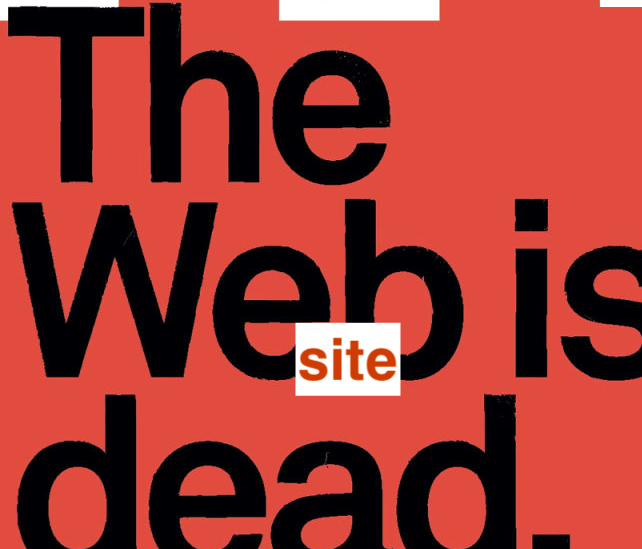Digital technology and it's disruption has transformed our society very rapidly in the last 20 odd years, as some experts claim "even more than invention of paper or discovery of oil " This mega-change includes domains of musical production, consumption and distribution . Yet, the world of contemporary music retains certain key characteristics attached to 20th century music, as seen in concert forms, in arrangement and production as well as the presence of institutions that support or guarantee these facets. In his provocative essay La révolution digitale de la musique published in 2012, the German philosopher Harry Lehmann examined the consequences of this transformation. He questions and examines the role of various 'non-musical forces 'upon which the 'commodification of music' stands upon.

His research states that music as such has transformed gradually into Poly-theory which extends into economics, society, technology and even philosophy. We must first understand that the aesthetic values attached to music have changed dramatically (when compared to the 20th century) in terms of creation as well consumption. Western Europe and North America are key witness to thousands of institutions (big and small) which are engaged in promoting. conserving, fostering as well as capitalizing on forms of music, new and old. In the context of this discourse, the term institution encompasses formal organizations, music academia, copyright agencies, festivals, artist-management companies, record labels, distributors, promoters, independent juntas, NGOs and various professional bodies existing. Digital technology vanquished a large part of the elite and often secretive exclusive nature of academic and classical institutions, by democratizing knowledge, resources and connectivity, especially amongst people who previously could not afford formal music education and remained unconnected to their peers. A transfer of power one can clearly see in the last 15 years. Though such a change has clearly benefitted millions of artists, fans and music professionals, the 'playing-field' is consequently flooded with mass-automation and stereotypical structures to address success and failure (of a given piece of music or the artist in question) The previous pillars of the society which held music as a part of their legacy, be it educational or cultural or even political, have given way to enterprise lead commissions, corporate assimilation, branded events and artists as well as an unspoken culture of exclusivity. What some refer as "pay to play" : be you the artist or the fan.
Previously held theories of composition and creativity are now virtually tossed aside in favor of number crunching systems. Though on one hand disrupting and dismantling previous edicts of music culture has fostered new hopes and new democratization, it has also lead to chaos and a corporate coup of culture. German philosopher Theodor Adorno encapsulated more than 70 years ago "the commercial character of culture causes the difference of culture and practical life to disappear" What Adorno refers as 'character' can be defined today as enterprise or simply business. We can draw a hundred if not thousand relevant examples of such a transformation of power : Be it giant tech-monopolies of Apple, Google which own 75% of the digital content market, or vehemently elite systems like Spotify, Soundcloud, Beatport etc or hidden facets like mass gender bias and non-inclusivity issues currently seen in many festivals, seminars, institutional and professional networking arenas. Though many more artists are now more autonomous and self-sustained in nature, co-existing without institutional support or even awareness, the career structure has become chaotic and prone to hype and chance, instead of actual talent. Further, technological disruption has not benefitted the artist or fans financially as predicted by many tech-gurus, instead has favored the large enterprises and 'providers' now engaged in controlling and selling almost all of emerging technology and related services. Even though technology claims to be altruistic 80% of online presentation and consumption of music has been gradually sequestered into various top-down institutional structures lead by new enterprises and inventors. Proof : the logos of facebook, twitter, instagram, youtube etc now appear on 78% of all globally published propaganda, online or real.
One has to constantly re-invent themselves or be deemed outdated by the new institutions championing elite and exclusive systems, be it the artist or the fans. Yet does one stop to ask why? and for who? Many would argue that technology is blind to talent and the internet works as any merit-based-system. Yet there is very little evidence to back that, and on the contrary we witness a mass homogenization of music and related fields into a big monoculture as predicted by Adorno, Max Hockenheimer, Enrich Fromm and various philosophers of critical theory.

A recent study in 2016-17 done in Germany, Spain, France, Holland, Belgium and UK including 48 different festivals (small and big), clubs and booking agencies : Were asked "How do you judge a given piece of music? or the artist?" More than 60% of the people would conduct such a process via numbers, via on-line presence (likes, downloads, shares, fans following etc) Approx. 15% would consult peers, existing cartels and or stick to given institutional mandates [Example- German festivals, clubs and agencies, small and large, receiving state-welfare funding have to showcase at least 40% german artists in their programs] About 10% of the survey-group would consider 'exotic value' or current trends in the market (Example- the sudden tide of women and LGBTQ DJs and Producers visible in mainstream electronic music since 2012) Yet, in the bigger picture who is actually left listening? Seeing and judging music via numbers seems the zeitgeist of this industry. In theory it makes sense yet in reality the results lead to mass mediocrity and overkill. Also how do these institutions reflect the truth about actual talent and artistic diversity. Do issues of equality, ethnic-diversity, gender and inclusivity of minority culture music remain unspoken for?
Digital Revolution or Coup? Actually both. Are we at war? Virtually yes. A recent survey conveys the fact that more than 65,000 songs are deleted every week, by Youtube vigilance systems due to copyright violations and related illegal acts. Yet fact remains that more than 50% of such cases are misappropriated. Since 2007, the number of albums published (online) on a per day basis has exponentially grown from approx. 460 to currently being assumed/debated at a staggering 3345 [citation here] 'Monitization' of data remains a vastly unfair monopolistic affair currently, with just about 31% of net revenues being harnessed by the artists and content creators [survey]. Everyone needs music. Consequently the rank of the composer or artist has been subsidized on various levels by business ethics and 'profit economy'. Democratization and diversity colliding with exclusivity and institutional hegemony. Digital technology and it's disruption is yet to liberate the arts and creative impulses for a vast majority of human beings.

His research states that music as such has transformed gradually into Poly-theory which extends into economics, society, technology and even philosophy. We must first understand that the aesthetic values attached to music have changed dramatically (when compared to the 20th century) in terms of creation as well consumption. Western Europe and North America are key witness to thousands of institutions (big and small) which are engaged in promoting. conserving, fostering as well as capitalizing on forms of music, new and old. In the context of this discourse, the term institution encompasses formal organizations, music academia, copyright agencies, festivals, artist-management companies, record labels, distributors, promoters, independent juntas, NGOs and various professional bodies existing. Digital technology vanquished a large part of the elite and often secretive exclusive nature of academic and classical institutions, by democratizing knowledge, resources and connectivity, especially amongst people who previously could not afford formal music education and remained unconnected to their peers. A transfer of power one can clearly see in the last 15 years. Though such a change has clearly benefitted millions of artists, fans and music professionals, the 'playing-field' is consequently flooded with mass-automation and stereotypical structures to address success and failure (of a given piece of music or the artist in question) The previous pillars of the society which held music as a part of their legacy, be it educational or cultural or even political, have given way to enterprise lead commissions, corporate assimilation, branded events and artists as well as an unspoken culture of exclusivity. What some refer as "pay to play" : be you the artist or the fan.
Previously held theories of composition and creativity are now virtually tossed aside in favor of number crunching systems. Though on one hand disrupting and dismantling previous edicts of music culture has fostered new hopes and new democratization, it has also lead to chaos and a corporate coup of culture. German philosopher Theodor Adorno encapsulated more than 70 years ago "the commercial character of culture causes the difference of culture and practical life to disappear" What Adorno refers as 'character' can be defined today as enterprise or simply business. We can draw a hundred if not thousand relevant examples of such a transformation of power : Be it giant tech-monopolies of Apple, Google which own 75% of the digital content market, or vehemently elite systems like Spotify, Soundcloud, Beatport etc or hidden facets like mass gender bias and non-inclusivity issues currently seen in many festivals, seminars, institutional and professional networking arenas. Though many more artists are now more autonomous and self-sustained in nature, co-existing without institutional support or even awareness, the career structure has become chaotic and prone to hype and chance, instead of actual talent. Further, technological disruption has not benefitted the artist or fans financially as predicted by many tech-gurus, instead has favored the large enterprises and 'providers' now engaged in controlling and selling almost all of emerging technology and related services. Even though technology claims to be altruistic 80% of online presentation and consumption of music has been gradually sequestered into various top-down institutional structures lead by new enterprises and inventors. Proof : the logos of facebook, twitter, instagram, youtube etc now appear on 78% of all globally published propaganda, online or real.
One has to constantly re-invent themselves or be deemed outdated by the new institutions championing elite and exclusive systems, be it the artist or the fans. Yet does one stop to ask why? and for who? Many would argue that technology is blind to talent and the internet works as any merit-based-system. Yet there is very little evidence to back that, and on the contrary we witness a mass homogenization of music and related fields into a big monoculture as predicted by Adorno, Max Hockenheimer, Enrich Fromm and various philosophers of critical theory.

A recent study in 2016-17 done in Germany, Spain, France, Holland, Belgium and UK including 48 different festivals (small and big), clubs and booking agencies : Were asked "How do you judge a given piece of music? or the artist?" More than 60% of the people would conduct such a process via numbers, via on-line presence (likes, downloads, shares, fans following etc) Approx. 15% would consult peers, existing cartels and or stick to given institutional mandates [Example- German festivals, clubs and agencies, small and large, receiving state-welfare funding have to showcase at least 40% german artists in their programs] About 10% of the survey-group would consider 'exotic value' or current trends in the market (Example- the sudden tide of women and LGBTQ DJs and Producers visible in mainstream electronic music since 2012) Yet, in the bigger picture who is actually left listening? Seeing and judging music via numbers seems the zeitgeist of this industry. In theory it makes sense yet in reality the results lead to mass mediocrity and overkill. Also how do these institutions reflect the truth about actual talent and artistic diversity. Do issues of equality, ethnic-diversity, gender and inclusivity of minority culture music remain unspoken for?
Digital Revolution or Coup? Actually both. Are we at war? Virtually yes. A recent survey conveys the fact that more than 65,000 songs are deleted every week, by Youtube vigilance systems due to copyright violations and related illegal acts. Yet fact remains that more than 50% of such cases are misappropriated. Since 2007, the number of albums published (online) on a per day basis has exponentially grown from approx. 460 to currently being assumed/debated at a staggering 3345 [citation here] 'Monitization' of data remains a vastly unfair monopolistic affair currently, with just about 31% of net revenues being harnessed by the artists and content creators [survey]. Everyone needs music. Consequently the rank of the composer or artist has been subsidized on various levels by business ethics and 'profit economy'. Democratization and diversity colliding with exclusivity and institutional hegemony. Digital technology and it's disruption is yet to liberate the arts and creative impulses for a vast majority of human beings.


























0 -